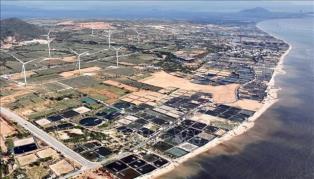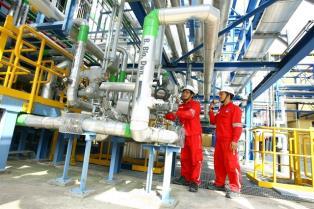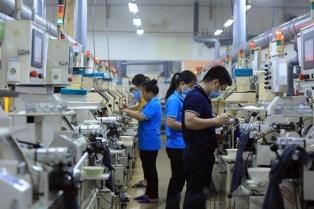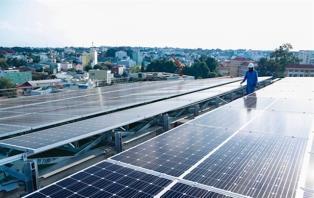EPR compliance key to F&B sector’s sustainability and market competitiveness
The adoption of EPR can help the F&B industry modernise production, reduce plastic waste, and improve its competitiveness in global markets

HCM CITY — The food and beverage (F&B) sector is under growing pressure to overhaul its production and packaging practices as the country accelerates the implementation of Extended Producer Responsibility (EPR) regulations.
Given the industry’s significant use of diverse packaging materials and its large contribution to post-consumer waste, compliance with EPR requirements is not only compulsory but vital for sustainable development, said Bùi Lê Thanh Khiết, head of the Plastic Circular Unit at the Institute for Circular Economy Development.
Speaking at the “Green Packaging Forum: EPR Journey Towards Sustainable Value” held on Friday in HCM City, he said Việt Nam’s legal framework, particularly the 2020 Environmental Protection Law, clearly defines producer responsibilities. Among the sectors most directly impacted by these regulations is the F&B industry.
“The sector uses a large and varied volume of packaging, resulting in a substantial amount of waste released into the environment,” Khiết said.
“Given the country’s high demand for food and beverages, this industry accounts for a significant share of total waste, which makes compliance with regulations on classification, collection, and recycling especially critical,” he said.
According to the latest draft of the EPR framework, packaging used for F&B products must meet mandatory recycling quotas starting in 2025. The draft also specifies the parties responsible for compliance, including manufacturers and importers. In the F&B sector, responsibility is shared not only by restaurants and distributors but also by raw material and packaging producers.
Clearly defining each entity’s responsibility is essential to avoid regulatory gaps or overlaps and ensure efficient waste management.
Under the system, businesses must complete declarations and submit reports online via the national EPR information system, which improves transparency and reduces administrative burdens.
Enterprises can fulfill their obligations in three ways: organising their own recycling operations, paying into the Environmental Protection Fund, or combining both approaches, he said.
Companies that meet or exceed recycling quotas will be eligible for incentives and reduced financial contributions, while non-compliant businesses will face higher fees. This financial mechanism is designed to drive innovation, encourage sustainable practices, and integrate environmental responsibility into core business strategies.
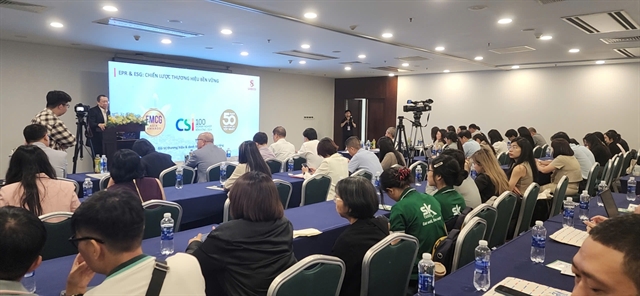
Many businesses still face challenges in ERP adoption. Khiết noted that the concept of "ecological design" in packaging, creating products that are easier to recycle, is still relatively new in Việt Nam.
For many companies, the biggest obstacle is the upfront investment needed in technology and design improvements to reduce waste and improve recyclability.
To address this, he emphasised the need for stronger coordination between the government, businesses, and recycling facilities. While the National EPR Council currently oversees implementation across key sectors, Khiết suggested establishing specialised working groups to better support specific industries like food and beverage. These groups could also help develop clearer regulations for monitoring, inspection, and performance evaluation.
Digital transformation is also playing a critical role in the EPR rollout. Over the past six months, several digital initiatives have been launched to support compliance tracking and streamline reporting processes. These efforts align with Resolution 57, which promotes green living and sustainability through digital innovation, he said.
Looking forward, Khiết called for stronger partnerships among businesses, local authorities and international organisations. Such collaboration can help reduce costs, optimise resource use and provide access to financial and technical support for pioneering enterprises.
He also highlighted the importance of public awareness campaigns to encourage waste sorting at the source, which is critical for effective recycling.
To ensure smooth implementation, the legal framework around EPR must continue to be refined. Transparent, accessible, and well-communicated guidelines will help businesses better understand and meet their obligations.
International experts have noted that the adoption of EPR can help the F&B industry modernise production, reduce plastic waste, and improve its competitiveness in global markets, he added.
In Europe, for instance, products are required to meet stringent “clean” criteria — both in composition and production processes. Aligning with such standards not only fulfills environmental responsibilities but also enhances brand image and investor confidence.
“Ultimately, EPR is a key pillar in Việt Nam’s green growth strategy. For the F&B sector, proactive preparation and compliance are essential. Achieving success will require coordinated, cross-sectoral collaboration between government agencies, enterprises and recycling stakeholders,” he said.
By fostering ecological responsibility, reducing plastic pollution and improving community health, EPR not only supports Việt Nam’s sustainability goals but also strengthens the country’s global business standing, he added.
The forum, co-organised by Việt Nam News and Law and Vinexad National Trade Fair & Advertising JSC, gathered over 100 delegates from government, industry, recycling, international organisations, startups and academia. — VNS


